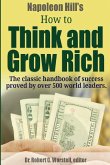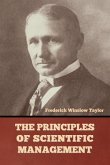"The Age of Big Business" is a history of how businesses changed from small, competing businesses to large corporations that controlled major portions of or all of an industry. Since the book was written in 1919, it was fascinating to see how the various industries have changed from post-Civil-War to post-World-War-I to now. For example, I didn't realize that America once exported oil. Chapter One compared 1865 to 1919 in terms of technology and business. Chapter Two gave an overview history of the discovery and business of oil and described how "the first great American Trust," the Standard Oil Company, was formed. Chapter Three gave an overview history of the major development and business of steel and how Carnegie Steel Company was formed. Chapter Four gave an overview history of the invention, development, and business of telephones and how the American Telephone & Telegraph Company was formed. Chapter Five gave an overview history of the development of public utilities. Chapter Six gave an overview history of the development and business of agricultural machinery and talked about McCormick's inventions and his three main competitors in that business. Chapter Seven gave an overview history of the invention, development, and business of the automobile and talked about Henry Ford. Overall, the book was easy to read and interesting. I'd recommend this book to those who enjoy reading about technology and business history. (Debbie) About the author: Burton Jesse Hendrick (December 8, 1870 - March 23, 1949), born in New Haven, Connecticut, was an American author. While attending Yale University, Hendrick was editor of both The Yale Courant and The Yale Literary Magazine. He received his BA in 1895 and his master's in 1897 from Yale. After completing his degree work, Hendrick became editor of the New Haven Morning News. In 1905, after writing for The New York Evening Post and The New York Sun, Hendrick left newspapers and became a "muckraker" writing for McClure's Magazine. His "The Story of Life-Insurance" exposé appeared in McClure's in 1906. Following his career at McClure's, Hendrick went to work in 1913 at Walter Hines Page's World's Work magazine as an associate editor. In 1919, Hendrick began writing biographies, when he was the ghostwriter of Ambassador Morgenthau's Story for Henry Morgenthau, Sr. In 1921 he won the Pulitzer Prize for History for The Victory at Sea, which he co-authored with William Sowden Sims, the 1923 Pulitzer Prize for Biography or Autobiography for The Life and Letters of Walter H. Page, and the 1929 Pulitzer Prize for Biography or Autobiography for The Training of An American. In 1919 Hendrick published the Age of Big Business by using a series of individual biographies to create an enthusiastic look at the foundation of the corporation in America and the rapid rise of the United States as a world power. After completing the commissioned biography of Andrew Carnegie, Hendrick turned to writing group biographies. There is an obvious gap in the later works published by Hendrick between 1940 and 1946, which is explained by his work on a biography on Andrew Mellon, which was commissioned by the Mellon family, but never published. At the time of his death, Hendrick was working on a biography of Louise Whitfield Carnegie, the wife of Andrew Carnegie. (wikipedia.org)
Hinweis: Dieser Artikel kann nur an eine deutsche Lieferadresse ausgeliefert werden.
Hinweis: Dieser Artikel kann nur an eine deutsche Lieferadresse ausgeliefert werden.









